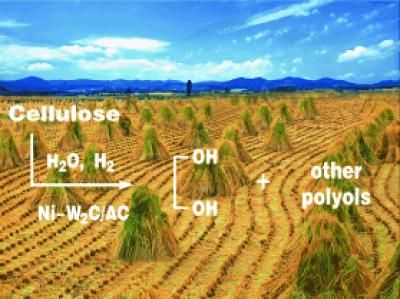Clothing From Cornfields: DuPont Develops a Fermentation-Based Process to Create Sorona(R) Polymer from Renewable Resources
Clothing from cornfields? DuPont scientists have recently developed an innovative bio-based method that uses corn -- instead of conventional petroleum-based processes -- to produce the latest polymer platform for use in clothing, carpets and automobile interiors.
Traditionally, fibers are petroleum-based materials. DuPont, with joint development partner Genencor International, developed a bio-based method that uses renewable resources instead of typical petrochemicals. Through metabolic engineering of biochemical pathways, a microorganism was engineered to use sugars from corn and corn biomass in a fermentation-based process. From annually renewable agricultural products, DuPont can now produce 1,3 propanediol (PDO), the key building block for DuPont(TM) Sorona(R) -- the company's newest polymer platform
The unique technical properties of Sorona(R) are derived from a unique, semi-crystalline molecular structure featuring a pronounced "kink." When stress is exerted on the molecule, strain deformation occurs first in its crystalline, lower modulus regions. As stress is released, the crystalline structure locks in, allowing a complete recovery to the initial shape. In conjunction with this distinctive characteristic, Sorona(R) fiber offers additional advantages over both polyester and nylon: it has a softer feel and supports easier, more versatile dyeability with excellent washfastness and UV resistance.
Currently, DuPont uses a petrochemical process in Kinston, N.C., to produce the Sorona(R) polymer. The company expects to announce transition plans to the new bio-based process later this year.
"Until now, most fibers have been produced using a petroleum-based process," DuPont scientist Dr. Scott Nichols said. "Now, after seven years of research in conjunction with Genencor International, we have honed a bio-based process, using renewable resources like corn and new abilities of E.coli to deliver an organism that can reliably produce PDO. The organism converts renewable corn sugar into reliably pure, consistent, and commercially viable amounts of PDO. The path to bio-based Sorona(R) combines the emerging metabolic engineering discipline with the premiere polymer science capabilities of DuPont."
Other news from the department research and development

Get the chemical industry in your inbox
By submitting this form you agree that LUMITOS AG will send you the newsletter(s) selected above by email. Your data will not be passed on to third parties. Your data will be stored and processed in accordance with our data protection regulations. LUMITOS may contact you by email for the purpose of advertising or market and opinion surveys. You can revoke your consent at any time without giving reasons to LUMITOS AG, Ernst-Augustin-Str. 2, 12489 Berlin, Germany or by e-mail at revoke@lumitos.com with effect for the future. In addition, each email contains a link to unsubscribe from the corresponding newsletter.




























































